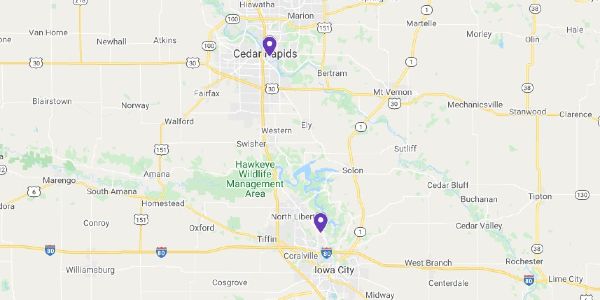In my last VBS Marketing Blog post, I addressed the sources and possible solutions for [not set] entries in Google Analytics reports. The conclusion: most of it is out of our hands, even if we address every possible problem on our end.
The problems causing [not provided] entries are a little simpler, but depending on who you are, is either frustrating or comforting.
The main source of [not provided] entries? Privacy protection.
[Not provided] is by no means a new problem, but for newer Google Analytics users, it’s just as frustrating and enigmatic as [not set] entries. Starting in 2011, Google has slowly been shifting their searches http to https, or non-protected ot protected. To check, perform any search on Google, and look up at the address bar.
At the beginning of the bar, you’ll notice a green padlock, followed by https://www.google.com/lettersnumbersmumbojumbo. This means that your connection with Google is encrypted, and makes it very difficult for eavesdroppers to see what you’re searching for or potentially hack into your computer.
And this is where the split in the community occurs. For Google search users, this is great news. Knowing Google has our backs when we’re surfing online is reassuring, and I for one welcome our new internet overlords. But for marketers, advertisers, and anyone using a GA account, this is a problem.
Instead of providing keyword information to GA reports, the new protected search masks the keywords users are searching with, and instead return the dreaded [not provided] result. There’s nothing wrong with your code, Google’s servers, or your website; this is just Google protecting the privacy of its users.
The ramifications of this shift is, obviously, debilitating for anyone attempting to capitalize on keyword search data. Planning the growth of your website while not knowing how people are finding it is like throwing darts blindfolded. You don’t know what lands and what misses, and have no idea where to start.
So what can you do about it? Well sadly, there is little to do in Google Analytics, and one solution seems a little underhanded. But nonetheless, the SEO community has found these two techniques can get at least some of your keyword data back.
Google AdWords
First, the paid way. Google AdWords is Google’s advertising platform. Ad managers create ads, bid on keywords that trigger their ads, and pay Google for the service. There’s of course more to it than that, but those are the basics. More information can be found about it here:
https://support.google.com/adwords/?hl=en#topic=3119071
So how does this work around [not provided] keyword entries? Well, when someone performs a Google search, finds your ad and either clicks on it or sees it, it shows you the exact keywords they searched for. You can even link your GA account with your AdWords account, and get reports from both. Zero [not provided] entries. To many, this is basically Google telling us “well we do have the information, but you have to pay for it.”
And this is where most of the frustration in the SEO community stems from. Claiming to hide search terms in the name of privacy, only to turn around and sell that information anyway to advertisers is unsettling. But, there isn’t much that we can do about it other than voice our concern and hope we’re heard. Luckily, there is another, free workaround.
Google Webmaster Tools
If you don’t have Google Webmaster Tools (also known as Google Search Console) configured for your website, now is the time to get it set up. With its Search Query feature, users can find detailed information about page visits, similar to a Google Analytics report. By combining results from your GA report with Google Webmaster Tools, most of the holes can be filled in your keyword data. More information about Google Webmaster Tools can be found here:
http://www.google.com/webmasters/
Please note, all sites developed and hosted by Vortex Business Solutions have Google Webmaster Tools active, enabled and optimized as a part of our Go Live protocol.
Even when using Google Webmaster Tools, there’s not way to eradicate [not provided] and [not set] keywords. Without paying for AdWords, however, it’s better than nothing. Maybe Google will become more transparent on this issue, but as for now, it seems like this is a pay-to-win game. The most important tactic is to utilize as many resources as you can.
How have your experiences with [not provided] and [not set] entries fared? Any solutions or work-arounds you’ve come up with? Feel free to share them!
To learn more about Google AdWords or Google Webmaster Tools, please contact Jonathan or Will at 319.621.0191!
Will Aden is a Web Development and SEO Engineer at Vortex Business Solutions in Iowa City.






